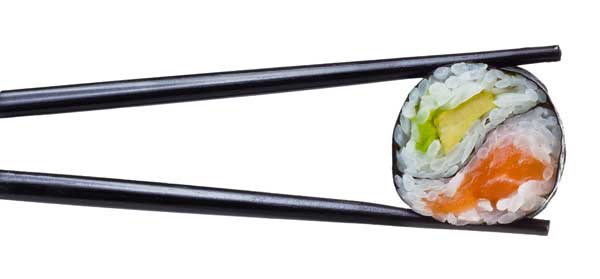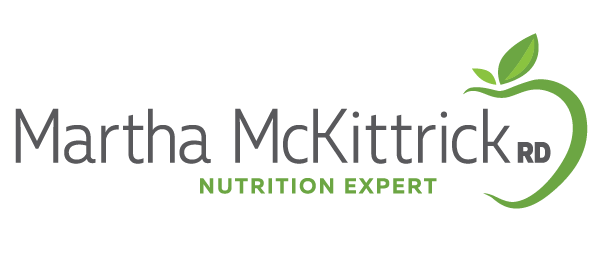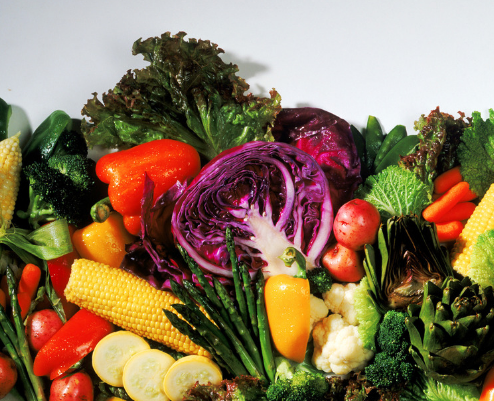Optimal Nutrition for Immunity


Being in the midst of a pandemic, we all want to do the best we can to stay healthy. Do certain foods improve your immune system? What about supplements? Turn to Dr. Google for advice and you’ll get 302,000,000 results for supplements for COVID! Good nutrition is essential to a strong immune system, which may offer protection from seasonal illness and other health problems. But before you start stocking up on every “immunity supplement” you come across, read on to learn what foods provide optimal nutrition for immunity and which supplements you should consider.
Get your 4 free downloads on Immune Boosting Foods and Optimal Nutrition for Immunity below!
No supplements can cure or prevent disease
While nutrients play a key role in the immune system, no supplement will cure or prevent disease. Currently, no research supports the use of any supplement to protect against COVID-19 specifically. And while certain supplements play an important role in immunity, we need better clinical trials addressing dosage, combinations, populations. Lastly, I am not a doctor nor am I giving medical or supplement advice in this blog post.
Immune system 101
It can help to have a basic understanding of a very complex topic – the immune system – before getting into the discussion of nutrients for immunity. The immune system is an elaborate network of tissues, cells, and organs that’s constantly defending the body against foreign bodies, such as bacteria, viruses and toxins and then deals with them if they manage to get in. Here is a little more in depth look.
Types of immunity:
 -Physical and biochemical barriers. Our skin, respiratory tract, and mucous membranes serve as our first line of defense against foreign invaders by blocking pathogens from entering our body. Each of these mechanisms are designed to trap foreign material and wash or move it out of the body via coughing, sneezing, etc. and contain antimicrobials, acids, or enzymes to inhibit the growth of or destroy microorganisms. Nutrients involved in this area involve Vit A, zinc, D, C, B6, B12, folate,
-Physical and biochemical barriers. Our skin, respiratory tract, and mucous membranes serve as our first line of defense against foreign invaders by blocking pathogens from entering our body. Each of these mechanisms are designed to trap foreign material and wash or move it out of the body via coughing, sneezing, etc. and contain antimicrobials, acids, or enzymes to inhibit the growth of or destroy microorganisms. Nutrients involved in this area involve Vit A, zinc, D, C, B6, B12, folate,
– Innate immune system. The innate immune response is the first response to an invading pathogen or an injury. It involves release of cells that ideally work in harmony to kill the invading pathogen, start repair, and signal the adaptive response.
– Adaptive immune system. While the innate response occurs quickly, the adaptive immune response is more specialized and often more effective. It has the ability to specifically recognize a pathogen and ‘remember’ it if exposure were to occur again. An example of an adaptive response is immunity to the chickenpox virus once exposure has occurred.
–> So why is this important? To show that the immune system is a very complex fine-tuned system AND that nutrients play a role in every single stage of the immune response.
Micronutrients and the immune system
Years ago, vitamin C was the superstar when it came to improving immunity thanks to Linus Pauling, MD. Feel a cold coming on, chug some orange juice. We now know that multiple nutrients including vitamins A, D, C, E, B6, and B12, folate, zinc, iron, copper, and selenium – play vital, often synergistic roles at every stage of the immune response. Strongest evidence for nutrients bolstering the immune system: vitamin C, D and zinc. But this mainly occurs in people who are deficient in these nutrients.
Nutritional status: optimal, suboptimal, or deficient?
Before getting into the discussion of nutrients for the immune system, it’s important to note that people who will see the benefits are the people who are deficient in a nutrient. Your nutritional status of nutrients can be classified as optimal, suboptimal or deficient. There are studies showing negative effects on the immune system when a person is DEFICIENT in a nutrient. So if your vitamin D was 18 ng/mL, which is considered deficient, taking a supplement get you to the optimal range would likely strengthen your immune system. There is less information on health effects when micronutrient status is suboptimal (rather than clinically deficient). For example, if your vitamin D level is 28 ng/mL (this is suboptimal or insufficient), you may or may not benefit from taking more Vit D. But most health care practitioners such as myself, would recommend getting your levels to an optimal range. Lastly, if your vitamin D is already in an optimal range of 30 ng/mL – 50 ng/mL, you would not see a benefit to getting it higher. On the contrary, too much of certain nutrients can be detrimental.
How do you know if you’re deficient in a nutrient?
Ideally this would be assessed in a blood test. Most standard blood tests will assess blood levels of Vit D, Vit B12, folate and others. However, accurate assessment of nutrients such as magnesium and zinc can be more difficult as only a very small amount of that nutrient is in blood – the rest is in other tissues. In cases like this, we often estimate your nutrient status by the amount you consume in your diet. So if your diet is low in leafy greens, whole grains and nuts, we could assume you may be deficient in magnesium.
What is the optimal level of a nutrient in your body?
Here is where is can get a little confusing. The “optimal” intake is based on the RDA (recommended daily intake). This is the average daily level of a nutrient sufficient to meet the nutrient requirements of nearly all (97%-98%) healthy people. But does this really take into account the needs of everyone? What if you don’t absorb certain nutrients as well? And what if our foods have less nutrients to start with? What if you have a gene that may decrease your absorption of certain nutrients? Maybe the RDA is not high enough! And what about if you already have an infection – do you need more of a nutrient even though you are consuming the RDA? At this time, it’s not currently possible to give an indication of the levels required to optimize immune protection and resistance to infection. However it is believed that treatment of established infections require higher doses than RDA. Bottom line – we need more studies. But here is one thing we do know: taking megadoses of some nutrients for extended periods of time can throw the delicate synergist balance of nutrients off and possibility have a negative effect on immunity.
Optimal nutrition for immunity
MOST IMPORTANT
1. Vitamin C
Vitamin C is a powerful antioxidant supports the immune system by stimulating the formation of antibodies. It also supports lung  function. Once ingested, vitamin C instantly reaches the lining of our airways, acting as the first life of defense against harmful oxidation caused by microbes, smoking, and other stressors. Reference. Viral infections activate our immune cells and cause oxidative stress, depleting vitamin C levels. Increased intake under such conditions can ensure antioxidant protection, support the immune response, and suppress viral replication. Vitamin C supplements (~ 200 mg) taken during a cold can reduce the duration of the illness by 8% in adults and 14% in children. Hemila (2013). Three human controlled trials had reported that there was significantly lower incidence of pneumonia in vitamin C‐supplemented groups, suggesting that vitamin C might prevent the susceptibility to lower respiratory tract infections under certain conditions Reference
function. Once ingested, vitamin C instantly reaches the lining of our airways, acting as the first life of defense against harmful oxidation caused by microbes, smoking, and other stressors. Reference. Viral infections activate our immune cells and cause oxidative stress, depleting vitamin C levels. Increased intake under such conditions can ensure antioxidant protection, support the immune response, and suppress viral replication. Vitamin C supplements (~ 200 mg) taken during a cold can reduce the duration of the illness by 8% in adults and 14% in children. Hemila (2013). Three human controlled trials had reported that there was significantly lower incidence of pneumonia in vitamin C‐supplemented groups, suggesting that vitamin C might prevent the susceptibility to lower respiratory tract infections under certain conditions Reference
However, there is currently NO evidence that Vitamin C can improve symptoms or outcomes for those with COVID-19. But stay tuned for the results of this study: In February, researchers at Zhongnan Hospital of Wuhan University launched a clinical trial. 140 patients given ultrahigh doses of Vit. C (12 g) given intravenously vs placeboTest group: infusions 2x day for 7 days. Trial completed in September 2020 – ClinicalTrials.gov
RDA: 75 mg/day for women and 90 mg/ day for men.
Food Sources: see Immune Boosting Foods handout below. Most people can meet their needs with food.
Caution: Vitamin C is a water-soluble vitamin so excess amounts come out in the urine. Note that high doses of vitamin C, exceeding a daily level of 2,000 mg, can cause nausea, diarrhea and abdominal pain in many people. Patients, particularly men, who have had kidney stones in the past and who test high for oxalate should avoid supplementing with vitamin C as it may enhance the formation of those types of stones.
My recommendation: if you aren’t eating Vitamin C rich foods on regular basis, take a supplement to meet the RDA – or even as high as 200 mg.
 2. Zinc
2. Zinc
Zinc is a dietary trace mineral that helps immune cells develop and stay healthy. It’s important for preventing an array of infections and problems that can arise from poor immune function Reference Severe zinc deficiency depresses immune function, and even mild to moderate degrees of zinc deficiency can impair macrophage and neutrophil functions, natural killer cell activity, and complement activity. The body requires zinc to develop and activate T-lymphocytes. Individuals with low zinc levels have shown reduced lymphocyte proliferation response to mitogens and other adverse alterations in immunity that can be corrected by zinc supplementation. Reference
Hemila (2017) and Roth (2010) randomized controlled trials (RCTs) have shown that oral zinc supplementation reduces the incidence rate of acute respiratory infections by 35%, shortens the duration of flu-like symptoms by approximately 2 days, and improves the rate of recovery. Inadequate zinc levels limit the individual’s ability to mount an adequate immune response to infections.
RDA: 8 mg for women and 11 mg for men. Most people can get enough of this mineral from a balanced diet, but people who are at risk of deficiency, including older adults or those with gut disorders or other chronic health problems, might need to supplement to maintain adequate zinc levels in the body. Zinc nutritional status is difficult to measure adequately using laboratory tests due to its distribution throughout the body as a component of various proteins and nucleic acids. Plasma or serum zinc levels are the most commonly used indices for evaluating zinc deficiency, but these levels do not necessarily reflect cellular zinc status due to tight homeostatic control mechanisms.
Food Sources: see Immune Boosting Foods handout below.
Cautions: high doses of zinc (> 50 mg) could lead to copper imbalance
Tolerable Upper Level: women and men 40 mg. Intakes of 150–450 mg of zinc per day have been associated with such chronic effects as low copper status, altered iron function, reduced immune function. Reference
If you supplement: 15-30 mg in the form of zinc glycinate, citrate, and picolinate.
My recommendation: You probably don’t need a zinc supplement, but you are unlikely to experience any harmful effects if you take one for 15-30 grams a day.
3. Vitamin D
 Vitamin D is not only a nutrient but also a hormone. We get it naturally from food, food that has been supplemented (i.e. milk), supplements and from sun exposure. It gets converted in to an active form in the body (calcitriol). In addition to its numerous roles in the body, it also stimulates the maturation of many cells including immune cells. Numerous studies suggests that vitamin D is protective against respiratory tract infections. Data from 25 randomized controlled trials from around the world demonstrate that vitamin D supplementation reduced the risk of acute respiratory infection by more than 50 percent, especially in people with low baseline vitamin D levels.
Vitamin D is not only a nutrient but also a hormone. We get it naturally from food, food that has been supplemented (i.e. milk), supplements and from sun exposure. It gets converted in to an active form in the body (calcitriol). In addition to its numerous roles in the body, it also stimulates the maturation of many cells including immune cells. Numerous studies suggests that vitamin D is protective against respiratory tract infections. Data from 25 randomized controlled trials from around the world demonstrate that vitamin D supplementation reduced the risk of acute respiratory infection by more than 50 percent, especially in people with low baseline vitamin D levels.
Vitamin D has been a hot topic in the news lately speculating on what role, if any, vitamin D may play in reducing the severity of COVID-19 infection. There’s emerging and growing evidence that vitamin D status may be relevant to the risk of developing COVID-19 infection and to the severity of the disease.
Vitamin D is important to innate immunity and boosts immune function against viral diseases. We also know that vitamin D has an immune-modulating effect and can lower inflammation, and this may be relevant to the respiratory response during COVID-19 and the cytokine storm that’s been demonstrated.
Observational data comparing outcomes from various countries suggest inverse links between vitamin D levels and the severity of COVID-19 responses, as well as mortality, with the further suggestion of an effect of vitamin D on the immune response to infection.
As per this Medscape article, there’s no randomized controlled trial on vitamin D and COVID -19 and that’s the gold standard. There is only observational data so it’s difficult to understand the relationship.
RDA: 600-800 IU for adults. 50% of the population has vitamin D insufficiency, 35% of people with obesity are deficient and 60% of people in nursing homes. So these people will need more vitamin D than the RDA. More important than the RDA, is your blood levels of vitamin D. The optimal levels is 30 ng/mL – 50 ng/mL – although other organizations like the Endocrine Society suggest 40-60 ng/mL.
Food Sources: see Immune Boosting Foods handout below. It can be difficult to meet vitamin D needs through the diet. About 50% to 90% of vitamin D is absorbed through the skin via sunlight while the rest comes from the diet. Twenty minutes of sunshine daily with over 40% of skin exposed is required to prevent vitamin D deficiency. Reference People with darker skin make less vitamin D. In addition, most people use sunscreen when in the sun! Therefore, many people will need to take a supplement.
If you supplement: dosage depends up your blood work. If you deficient, you may need 5000 IU or higher a day. Discuss dosage with your doctor. Dr. JoAnn Manson professor of medicine at Harvard Medical School and Brigham and Women’s Hospital says, “For patients who are unable to be outdoors and also have low dietary intake of vitamin D, it’s quite reasonable to consider a vitamin D supplement. The recommended dietary allowance of vitamin D is 600-800 IU/daily, but during this period, a multivitamin or supplement containing 1000-2000 IU/daily of vitamin D would be reasonable”. For treatment of people who become infected with COVID-19, higher vitamin D3 doses might be useful. Randomized controlled trials and large population studies should be conducted to evaluate these recommendations. Reference
Caution: Excessive vitamin D intake, or vitamin D toxicity, can cause non-specific symptoms such as anorexia, weight loss, polyuria, and heart arrhythmias. More seriously, it can also raise blood levels of calcium which leads to vascular and tissue calcification, with subsequent damage to the heart, blood vessels, and kidneys. Reference
Tolerable Upper Level: 4000 IU (though many people take more if deficient)
My recommendation: Take a supplement to get your blood levels to 30 ng/mL – 50 ng/mL – or as recommended by your doctor.
IMPORTANT, BUT NOT KEY PLAYERS
4. Vitamin E
Vitamin E is an essential fat-soluble vitamin that supports heart health and strengthens the immune response. It protects cell membranes from damage caused by free radicals and supports the integrity of epithelial barriers. (Gombart, 2020)
RDA: 15 mg
Food Sources: see Immune Boosting Foods handout below. Most people can meet their needs with food.
Tolerable Upper Level: 1000 mg daily, which is equivalent to 1100 IU of synthetic or 1500 IU of natural alpha-tocopherol
Caution: Research has not found any adverse effects from consuming vitamin E in food. However, some studies have found in increased risk of hemorrhagic effects and small but statistically significant increases in all-cause mortality. Reference
My recommendation: You likely do not need a supplement
5. Selenium
Selenium is an essential trace mineral that is important for many bodily processes, including cognitive function, a healthy immune system, and fertility in both men and women. Selenium deficiency adversely affects the activation, differentiation, and proliferative capacity of immune cells. Through its incorporation into selenoproteins, selenium plays an important role in initiating “normal” immunity as well as regulating excessive immune responses. Reference
RDA: 55 ug/day adults,60 ug/day for pregnant women and 70 ug/day for lactating women
Food sources: see Immune Boosting Foods handout below. Most people can meet their needs with food.Selenium deficiency is rare worldwide. It often takes years to develop, and it usually only occurs in regions with severely low selenium content in the soil.
The Tolerable Upper Intake Level: 400 μg
My recommendation: You likely do not need a supplement

6. Prebiotic and Probiotic rich foods
Probiotics and prebiotics should be classified under MOST IMPORTANT. But since we don’t have a RDA or optimal gut microbiome, I put it here! We all have about 5 pounds of bacteria living in us and on us; the majority live in our intestinal tract. Immune cells and gut bacteria, both of which live in the gut, used to be considered mutual enemies. But we now know that they work together and that 60 to 70% of our immune cells are in the intestinal tract!
While each person has a different set of intestinal flora—which also change with age—the most influential factors are environmental, including diet. So there has been a lot of discussion lately about consuming probiotics from food and supplements. (Probiotics are the “good” bacteria). Probiotics may help give your immune system a boost and inhibit the growth of harmful gut bacteria. Research has shown that probiotics play a major role in our health – including improved immunity, digestive health, mental health, weight control, decreased risk of diabetes, heart disease, and more.
And prebiotics are just as important. These non-digestible carbohydrates are essential to help “feed” your good bacteria. And most of us don’t consume nearly enough of them as we consume less than 50% of the recommendations for fiber each day. Read my previous blog post: Prebiotics and Where to Find Them
But we are really at the tip of the iceberg when it comes to knowledge of what it is the optimal gut microbiome. The human intestinal tract is home to 500 different types of gut bacteria, totaling some 100 trillion organisms in total. What is the optimal makeup of the gut microbiome for overall health and immunity? At this time, we don’t know. And it’s also likely it may vary person to person. We probably will know the answer to this question in years to come.
Food Sources: see Immune Boosting Foods handout below.
RDA: there is no RDA. Interesting read: Boosting Immunity Through Gut Bacteria
My recommendation: focus on consuming foods rich in prebiotics and probiotics. We don’t know enough yet about the ideal gut microbiome. In addition, each person has their own individual microbiome. If you want to take a probiotic, check out this chart to help decide which one may be best for you: Clinical Guide to Probiotic Products in the US. Taken from that chart, these strains may help with immunity: acidophilus, bulgaris & S. thermophilus combined, bifidu, helveticus + B. longum combined.
7-12. Other nutrients, including vitamin B6, B12, copper, folate, selenium and iron also may support immune response and play a role in a healthful eating style. See FREE DOWNLOADS below to learn more about these nutrients.
Lifestyle habits important for the immune system
13. Stress management
When we’re stressed, the immune system’s ability to fight off antigens is reduced. That is why we are more susceptible to infection. In addition, stress decreases the body’s lymphocytes — the white blood cells that help fight off infection. The lower your lymphocyte level, the more at risk you are for viruses, including the common cold and cold sores. Stress can also lead to inflammation.
14. Exercise
We do not know exactly if or how exercise increases your immunity to certain illnesses. There are several theories. However, none of these theories have been proven. Some of these theories are:
- Physical activity may help flush bacteria out of the lungs and airways. This may reduce your chance of getting a cold, flu, or other illness.
- Exercise causes change in antibodies and white blood cells (WBC). WBCs are the body’s immune system cells that fight disease. These antibodies or WBCs circulate more rapidly, so they could detect illnesses earlier than they might have before. However, no one knows whether these changes help prevent infections.
- The brief rise in body temperature during and right after exercise may prevent bacteria from growing. This temperature rise may help the body fight infection better. (This is similar to what happens when you have a fever.)
- Exercise slows down the release of stress hormones. Some stress increases the chance of illness. Lower stress hormones may protect against illness.
Exercise is good for you, but, you should not overdo it. People who already exercise should not exercise more just to increase their immunity. Heavy, long-term exercise (such as marathon running and intense gym training) could actually cause harm. Reference
15. Adequate sleep
Without sufficient sleep, your body makes fewer cytokines, a type of protein that targets infection and inflammation, effectively creating an immune response. Cytokines are both produced and released during sleep, causing a double whammy if you skimp on shut-eye. Chronic sleep loss even makes the flu vaccine less effective by reducing your body’s ability to respond. Reference
Bottom line
Good nutrition is essential to a strong immune system, which may offer protection from seasonal illness and other health problems. No one food or supplement can prevent illness but you may help support your immune system by including these nutrients in your overall eating plan on a regular basis.
There have been studies done over the years showing how supplements of certain nutrients can improve the immune system if you are deficient in that nutrient. But what if you aren’t deficient – will taking a supplement improve your immune system more? At this time, the answer is no. But we need more studies!
This current pandemic is highlighting the importance of certain nutrients that play major roles in the immune system. But we need more clinical trials before jumping on the megadose bandwagon, addressing dosage, combinations, populations.
In addition, your immune system is highly complex and the nutrients that keep it function optimally work in a synergist manner. So taking too much of one nutrient MAY throw off that balance. That being said, focus on getting your nutrients from foods. But I know not everyone has the best diet! And it can difficult to meet 100% of your needs with food (i.e. for Vitamin D). In addition, it can be difficult to assess status of certain nutrients like magnesium and zinc in blood tests (as much of these nutrients are not in the blood). So some people may benefit from taking supplements.
Supplement recommendations:
Supplement with Vit D if your levels are low. If you don’t know what they are, consider taking a vitamin D supplement of 1000 IU (and 2000 IU if you rarely get outside) until you know what your levels are. If you eat a balanced diet, you likely don’t need zinc and vitamin C. But taking a general high quality multivitamin/mineral could help fill in the gaps! And if you did want to take extra Vit C, I’d suggest 200 mg, and zinc 30 mg. And don’t forget about healthy lifestyle.
Stay healthy and stay safe! If you are looking for nutritional guidance to meet your goals while you stay at home, I’m here for you with virtual counseling. Email me at martha@marthamckittricknutrition.com or call 212 879 5167 for more info.
References:
Webinar Supplements in your corner? The fight against infectious disease by Holly Herrington, MS, RD, LDN, CDE
Vitamin D: Fact Sheet for Health Professionals
A Review of Micronutrients and the Immune System–Working in Harmony to Reduce the Risk of Infection
FREE DOWNLOADS

DOWNLOAD: Immune Boosting Foods (3 pages)
DOWNLOAD: Immune Supporting Plate

DOWNLOAD: Nutrition for Optimal Immunity
RELATED POSTS
MEET MARTHA
I especially love problem-solving, whether it’s helping women defeat issues plaguing them for years, helping a busy executive find practical ways to get heart healthy, or providing tips to help you reverse diabetes. That’s why I’m on a constant quest to expand my knowledge by staying on top of the latest research.

20 Ways To Eat Out 550 Calories or Less!
No time to cook? We’ve got you covered. Here are 20 healthy meals from a variety of cuisines that won’t pack on the pounds. Most of them also have less than 30 grams of carbs.
Subscribe to my newsletter and get this free download.





